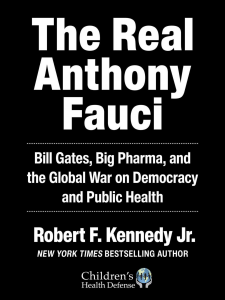As much as the medical industry would like you to think otherwise, there is not physical/biological test for depression. Most tests are done by doctors or psychiatrists that ask a series of questions. They are trying to determine if one has clinical depression.
Definition of Clinical Depression:
“Clinical depression is the more severe form of depression, also known as major depression or major depressive disorder. It isn't the same as depression caused by a loss, such as the death of a loved one, or a medical condition, such as a thyroid disorder.”
The issue here is that this is all subjective. It is all in the opinion of the doctor or psychiatrist. The huge majority of psychiatrists will not do physical tests as they are not actually looking for the CAUSE of depression. They are looking to summate symptoms.
Most doctors have the know how to actually ascertain the cause but don’t willingly take the time.
From an article by Fred Ovsiew in the Psychiatric Times:
“Psychiatric patients commonly suffer from general medical conditions; often these conditions affect or even produce the mental disorder. In formulating the psychopathologic condition and identifying its cause, why would one want to forgo tools that generations of physicians have found useful in the diagnostic endeavor?”
- Sugar and Depression
Sugar has been long known as a big contributor to depression. It spikes then crashes your insulin levels. Watch children race around at the end of a birthday party when they have had the cake, then crash violently later. Have a bunch of sugar for lunch and try and stay awake and alert in the middle of the afternoon. The website PsychCentral.com has a good article on that here: Depression and Sugar
2. Allergies and Depression
It has been known for years that allergies are linked to depression. Any number of books and articles connecting the two. Besides affecting sleep and general function there are other chemical reactions that also affect one at a biological level. Allergies have been connected to numerous other mental disorders as well. Great article here on WebMD.com : Depression and Allergies
3. Monosodium glutamate (MSG) and Depression
MSG is rampant. Is has many names and that is the subject of someone else’s article. There is a lot of evidence how it can affect ones mood. MSG should absolutely NOT be given to growing children or teens. This is a very scientific article on the subject but if you can wade through the technical gobbledygook you will see the dangers. Even adults can have mild to severe reactions to Monosodium glutamate. This food ingredient is almost impossible to stay away from if you are eating packaged goods. It is there to enhance the flavour and most packaged goods have the flavors pretty much processed out of them. Also, most restaurant foods, particularly fast foods will contain MSG. Again, the warning about the technical jargon: Depression
4. Soda, Pop, Soft Drinks and Depression
High Fructose Corn Syrup has replaced sugar in a lot of instances or is often used in conjunction with sugar in non-diet soft drinks. Both diet and non-diet soft drinks have been consistently linked to obesity but here is a study that directly correlates fructose to depression. If you do the research, you will find that High Fructose Corn Syrup is actually worse for you than sugar. It spikes the insulin levels in ones body even worse than sugar. So, this can cause depression in both a direct and indirect manner. Directly by the insulin ‘crash’ and indirectly by the numerous side and other effects of obesity and other health problems. So, if you don’t want your children or teens getting depressed or overweight then don’t give them soda or packaged breakfast cereals.
5. TV, Radio, Newspaper News and Depression
Some years ago, a friend was at a clients house and found her to be terribly depressed. On questioning her, he found that she started and finished every day watching the News on television and would also read the newspaper and listen to the news on the radio throughout the day. He challenged her to stop all this for a period of six to eight weeks. She agreed. In only eight days she called him and said that her outlook on life had completely changed. She was happy and didn’t get down or depressed easily at all. She was more than a little amazed at how simple this was. This was slightly before the advent of Facebook. I challenge anyone that is having trouble and is also reading on Facebook or online or anywhere how absolutely horrible the world is, to STOP! Take a few weeks - don’t worry, the world won’t end - and completely get rid of the ‘News’ in your life.
6. Television and Depression
There is a direct proven link between watching television and depression. TV is hypnotic. It is also putting one at effect instead of getting a person DOING something. (No, watching TV is not ‘doing something.) The obvious effects are its contribution to obesity but many people will be surprised to find television’s relationship to Depression. One may think that watching the boob tube is a way of distracting oneself from troubles or ‘taking a break’. If you are going to do that, though, keep it to a minimum. Which is pretty much impossible for most people. This site: rodalewellness.com cites several research surveys done by scientists that show without a doubt that watching too much television can increase and actually cause depression. Watching TV
So, you have a choice. You can just take a pill from your doctor and mask some symptoms or you solve it yourself. In our next article, I will list out the prescription(pharmaceutical) drugs that actually cause depression.
 annotated, the pages of the book display how rulers in the military/industrial complex and the pharmaceutical companies in the United States and other countries waste hundreds of thousands and even millions of lives [read more]for money and power. For them, there is never enough.
annotated, the pages of the book display how rulers in the military/industrial complex and the pharmaceutical companies in the United States and other countries waste hundreds of thousands and even millions of lives [read more]for money and power. For them, there is never enough. 



 were incredible.
were incredible.